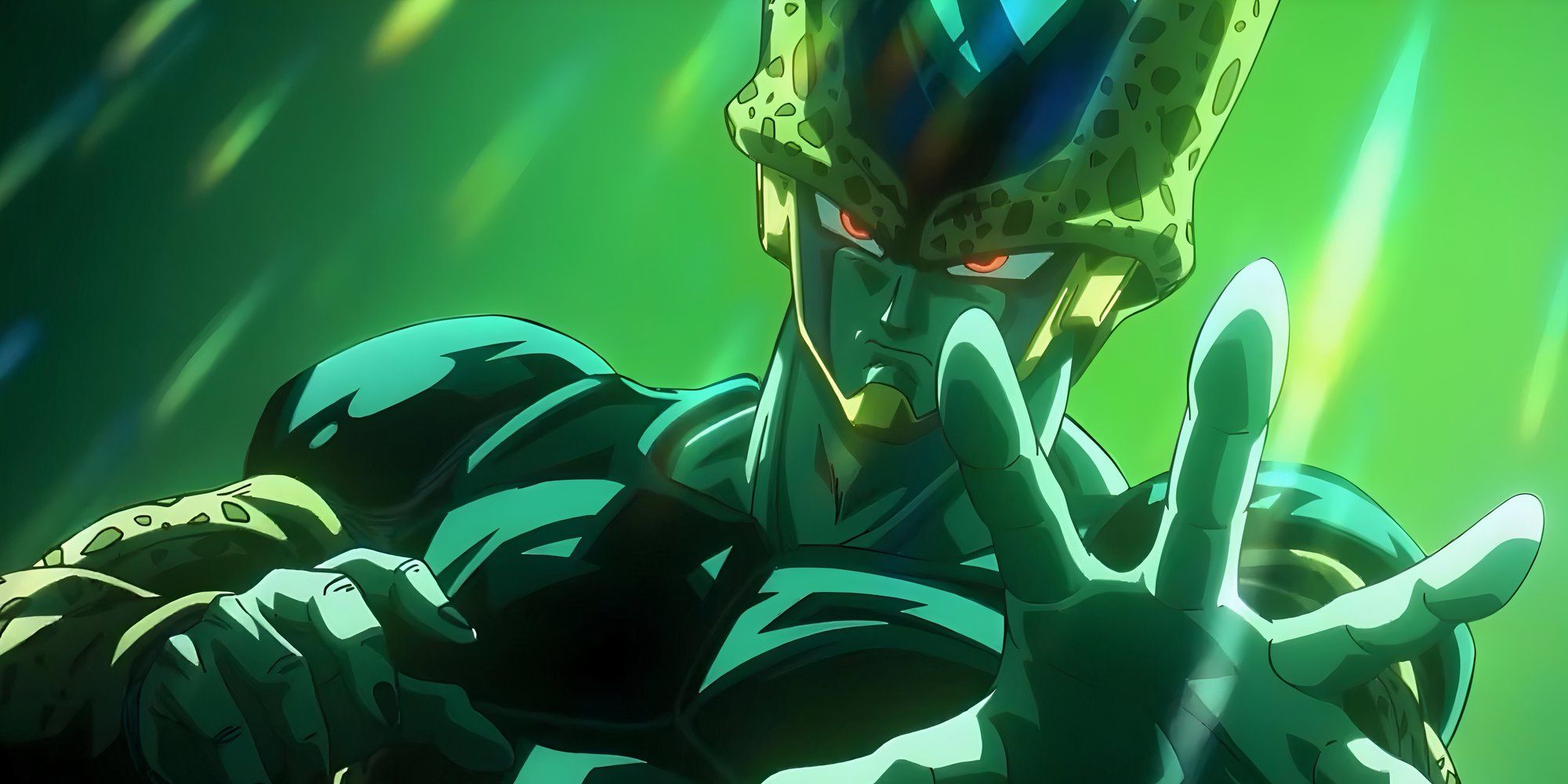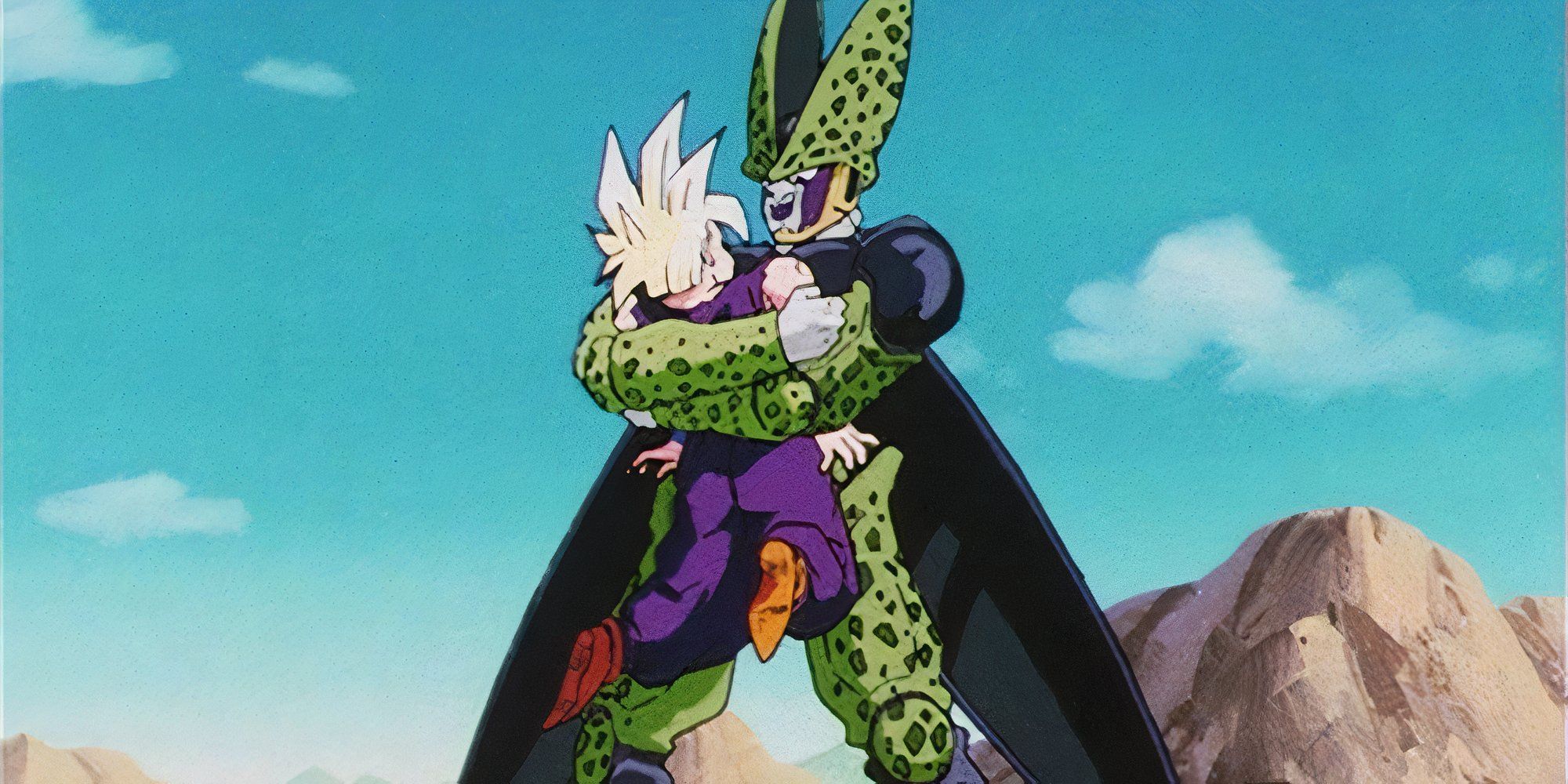
Dragon Ball Z had a legendary journey with countless villains and unforgettable moments throughout the series. However, if there is just one saga that stands out from the rest, it is the Cell Saga. With stunning transformations, high-stakes battles, character growth, and underlying themes of power and sacrifice, it's the perfect encapsulation of what you do Dragon ball so good.
While other sagas like Frieza or Buu have big moments of their own, there's a reason why the Cell saga continues to stand out decades after its release. For the Z-Fighters, it was not just a fight for survival, but a saga where each character played an important role and each decision had a lasting effect. The Cell Saga was full of action and had exciting and jaw-dropping momentsand as much as Dragon Ball Z is known for taking power levels to new and greater heights, the Cell Saga managed to make them unforgettable.
Cell completely redefined what it means to be a villain in Dragon Ball Z
Cell's adaptability made him more dangerous than any of the series' previous villains
Cell is one of the most unique and complex villains in Dragon Ball Z. Unlike his predecessor Frieza, whose tyrannical power and ambition made him a force of destruction, Cell was adaptable and strategic, taking advantage of his opponent's weakness to further his goals. Created by Dr. Gero as the culmination of the Red Ribbon Army's legacy, Cell was not just another obstacle, but a reminder that their actions can come back to haunt them. As a being who harnessed the best and most powerful aspects of the Z-Fighters, including Vegeta's pride and Piccolo's regeneration, Cell became a villain born of his victories.
His transformations throughout the series proved its impressive and rapid adaptability. As Imperfect Cell, he was a predator who stalked and absorbed countless humans as a horrific threat. Then, as Semi-Perfect Cell, he was much more adamant and clever in taking advantage of the character's weaknesses, effectively turning Vegeta against himself and the Z-Fighter's best interests. By the time he reached his perfect form, Cell had a disturbing calm, treating the Z-Fighters with a mixture of arrogance and even respect. Cell became so sure of his power that he gave his opponents time to prepare for what became the Cell Games.
Unlike other villains in the series, Cell's ultimate goal was to achieve perfection. not out of malice, but simply for their own interests. His motivations were not just for external destruction, but for his own fulfillment and desire for self-improvement. He was smarter, more cunning, and fully aware of the pressure he was putting on the Z-Fighters, reveling in the terror he had created by waiting for the Games to begin, turning it into a psychological battle. Their assurance and path to perfection undermined the Z-Fighters at almost every turn, making their eventual defeat all the more satisfying.
The Cell Games was the most tense and memorable confrontation in Dragon Ball Z
Cell not only challenged the character's power, but also his mentality through psychological battles
The Cell Games stand out as one of the most intense moments of all Dragon Ball Z. Unlike battles against Vegeta or Frieza, the Cell Games became more than a fight for survival and instead became a spectacle orchestrated by Cell to display his power while simultaneously taunting Goku and his friends. The rules were simple, returning the series to the World Martial Arts Tournaments, but with much higher stakes, creating an undercurrent of tension.
One of the aspects that made Cell Games so tense was also the investment made in the characters' growth. Goku's willingness to step down and Gohan to receive the mantle, Piccolo's anger at Goku for placing the weight of the world on his son's shoulders, and Vegeta's realization of his own limitations and flaws culminated in creating a tense atmosphere. In this battle, the focus changed from a battle of strength to a psychological struggle for many of the charactersforcing them to confront their limits and the implications those limitations have on others.
The Cell Games were proof that Cell was a master of psychological battles, and he never hesitated to take his cruelty a step further. During his battle with Gohan, he forced the boy to watch as the Cell Juniors turned the Games into a chaotic free-for-all, taking down his friends one by one. The sight of his friends and family being overwhelmed was almost enough to push Gohan to his mental limit until Android 16's death triggered his Super Saiyan 2 transformation.
Android 16's sacrifice became one of the series' most memorable and heartbreaking moments. Because he is a character programmed to kill, his good nature made him one of the kindest and gentlest beings. This unexpected turn of events quickly made Android 16 a fan favorite and made his eventual death even more impactful, not just for Gohan, but for viewers as well. Along with Goku's sacrifice, the Cell Games provided a thrilling fight that led to heavy casualties, making it truly feel like the Saga with the highest stakes with nothing to gain but everything to lose.
The big stakes and thrills in mobile games make it unforgettable
The emotional current led the Cell saga to become the biggest in the series
With Cell threatening to destroy the planet and the sacrifices that led to his defeat, the saga offered the characters brilliant developments that seemed in line with their personalities. Goku's decision to entrust the fight to Gohan was the first time Goku recognized his own limitations and placed his faith in the next generation. This led Gohan to a position where he struggled to live up to his father's expectations and became convinced that he couldn't. His hesitation and reluctance to get involved was difficult to watch, adding to the weight of the Cell Games.
Although Gohan eventually reached Super Saiyan 2, he did so through intense emotions and sadness, which became a recurring theme as the Cell Games continued. Vegeta's guilt over allowing Cell to achieve his perfect form, leading to his son's temporary death, drove him to fight harder than ever. Likewise, Piccolo's paternal instincts towards Gohan, criticizing Goku for his decision to throw him into battle, added to the weight of the battle.
Ultimately, the Cell Saga stood out for being more than a fight between powerful heroes and villains. Instead of, was turned into a battle of ideals and wills that revealed the best and worst of characters. The Saga's high stakes and emotional undercurrent easily made it one of the most tense arcs in all of history. Dragon Ball Z.
